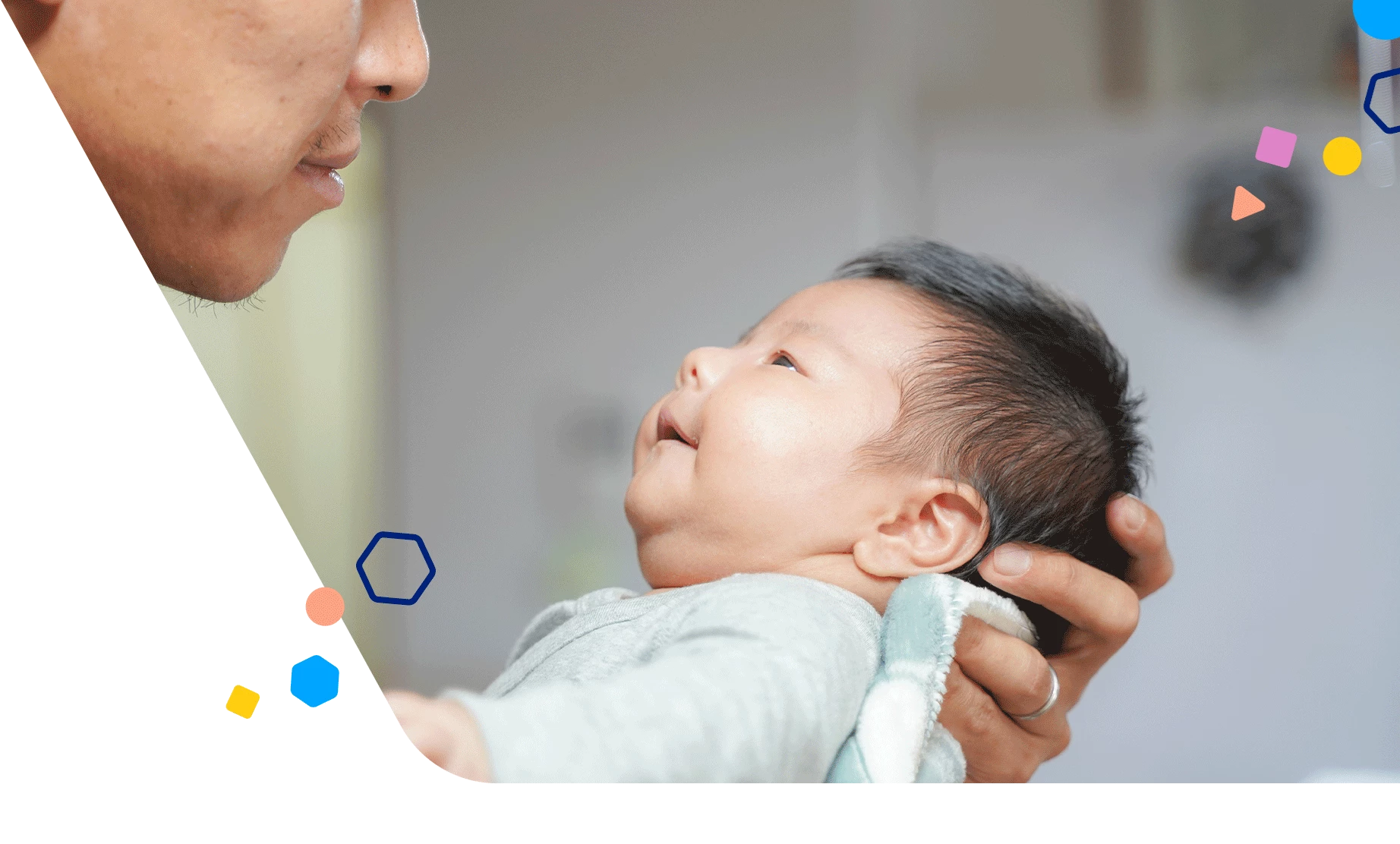Your little one is discovering more and more of the world around them. Watching them do this is one of the many joys of parenthood. Here are some suggested activities to help develop your newborn’s senses.
Your newborn’s senses: Sight
Right now, it’s easiest for your sweetie to focus on people and things nearby. They might watch your face while feeding or their eyes may follow bright objects. As your infant grows, their ability to focus on things farther away improves.
Activities to help strengthen your baby’s sense of sight:
- Hold your infant eight inches from your face and gently talk to them. When you have their attention, slowly move your head from side to side. Be patient. Your sweetie might not track your face to the other side of their nose until they’re a bit older.
- During the first few weeks, babies see shapes and bold colors more clearly than subtle patterns or pastels. You can create visual stimulation by introducing simple black-and-white patterns.
- After a few weeks, try sharing bright, colorful toys with your little one. If you move the toy slowly in front of your baby, they can learn to follow the toy with their eyes.
- Watch what happens when you put your infant in front of a mirror. Babies are often interested in looking at their own, cute reflection.
Your newborn’s senses: Sound
Your baby is aware of the many sounds around them. Your voice is one of their favorite things to hear.
Actions to help strengthen your baby’s sense of sound:
- Talk to them in a soft, calm tone. While your baby may not understand what you say, they'll respond to hearing your voice.
- To encourage listening, vary the sound of your voice by changing your volume and tone.
- Sing or hum to your baby.
- Introduce new sounds like musical toys or rattles.
Your newborn’s senses: Touch
Your child’s sense of touch starts with their mouth then spreads to their whole body. The power of touch can turn a fussy little one into a contented sweetie. Your gentle touches help them feel safe and secure.
Activities to encourage your baby’s sense of touch:
- Hold your infant. During these early months, it won’t spoil them no matter how much you do it. They’ll feel loved and secure.
- Respond to your baby’s signals. They'll be relaxed and snuggly when they want to be cuddled. If they seem upset, try holding them without moving or pick them up and move around slowly.
- Introduce lots of different textures like stuffed animals, water, and even your skin.
Your newborn’s senses: Taste and smell
Taste and smell help babies learn about the physical world. This is why they put everything in their mouth. Newborns know flavors like sweet and sour early on, and all babies are born with a taste for breast milk and formula.
Understanding your baby's sense of taste and smell:
- Newborns recognize the taste and scent of their own mother's milk.
- Your baby’s taste buds are stimulated by every feeding.
- Normal household aromas build their sense of smell.
Your baby’s senses grow sharper every day. Enjoy this amazing time of developments in your little love.


